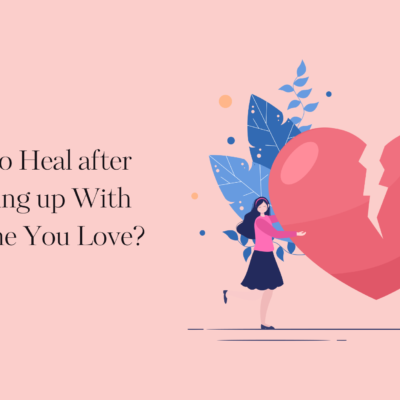How to Heal after Breaking up With Someone You Love: Breaking up with someone you love can be one of life’s most challenging experiences. The pain can feel overwhelming, and moving forward may seem impossible. However, healing is not only achievable but can also lead to personal growth and a renewed sense of self. Here are some steps to help you navigate the journey of healing after a breakup:
Also Read:
How to Heal after Breaking up With Someone You Love:
1. Allow Yourself to Grieve
Why It’s Important: A breakup is a form of loss, and it’s natural to feel a range of emotions—sadness, anger, confusion, or even relief. Suppressing these feelings can delay healing.
How to Do It:
- Give yourself permission to feel and process your emotions without judgment.
- Cry if you need to; journaling or talking to a trusted friend can also help you express what you’re feeling.
- Remember, grief isn’t linear. Some days will be harder than others, and that’s okay.
2. Cut Off Contact Temporarily
Why It’s Important: Maintaining contact immediately after a breakup can make it harder to heal and create false hope.
How to Do It:
- Set boundaries by unfollowing or muting your ex on social media and avoiding texts or calls.
- Inform mutual friends that you need space and would prefer not to hear updates about your ex.
- Use this time to focus on yourself and rebuild your independence.
3. Rediscover Yourself
Why It’s Important: Relationships often require compromise, and it’s easy to lose sight of your individual identity.
How to Do It:
- Reconnect with hobbies or passions you may have neglected.
- Try new activities that challenge you, such as learning a skill or exploring a new place.
- Reflect on what makes you happy as an individual, outside of a relationship.
4. Build a Support System
Why It’s Important: Having people to lean on can make the healing process feel less isolating.
How to Do It:
- Reach out to family and friends who provide comfort and understanding.
- Consider joining support groups or talking to others who have gone through similar experiences.
- If needed, seek professional help from a therapist to navigate complex emotions.
5. Focus on Self-Care
Why It’s Important: Taking care of your physical and mental well-being helps restore balance and builds resilience.
How to Do It:
- Prioritize good nutrition, regular exercise, and adequate sleep.
- Practice mindfulness or meditation to manage stress and stay grounded.
- Treat yourself to small joys, like a relaxing bath, a favorite meal, or a new book.
6. Reframe Your Perspective
Why It’s Important: Shifting your mindset helps you find meaning in the breakup and opens the door to personal growth.
How to Do It:
- Acknowledge the lessons you’ve learned from the relationship, both good and bad.
- Accept that the breakup is an opportunity to grow and discover new paths.
- Focus on gratitude for the positive moments you shared without clinging to the past.
7. Set New Goals
Why It’s Important: Having goals gives you a sense of purpose and keeps your mind engaged.
How to Do It:
- Set personal or professional goals that excite and motivate you.
- Break larger goals into smaller, actionable steps to stay consistent.
- Celebrate milestones along the way to boost your confidence.
8. Avoid Rebounding
Why It’s Important: Jumping into a new relationship too soon can prevent you from fully healing and processing the breakup.
How to Do It:
- Take time to reflect on what you want and need in a future relationship.
- Focus on building a solid foundation of self-love before seeking a new partner.
- Remember, being single can be a valuable time for growth and self-discovery.
9. Create a Positive Environment
Why It’s Important: Your surroundings can greatly impact your mood and mindset.
How to Do It:
- Declutter and organize your living space to create a sense of calm.
- Remove items that remind you of your ex if they hinder your healing.
- Surround yourself with uplifting people, books, music, or podcasts.
10. Be Patient with Yourself
Why It’s Important: Healing takes time, and rushing the process can lead to unresolved feelings.
How to Do It:
- Remind yourself that it’s okay to have setbacks; progress is not always linear.
- Avoid comparing your healing journey to others—everyone’s timeline is different.
- Trust that with time, the pain will lessen, and you will feel whole again.
Conclusion
Healing after a breakup is a deeply personal journey that requires time, patience, and self-compassion. While the road may be challenging, it’s also an opportunity to grow stronger, wiser, and more self-aware. By embracing the process and prioritizing your well-being, you can emerge from this experience with a renewed sense of purpose and readiness for the future. Remember, healing isn’t about forgetting the love you had but about learning to love yourself more.








